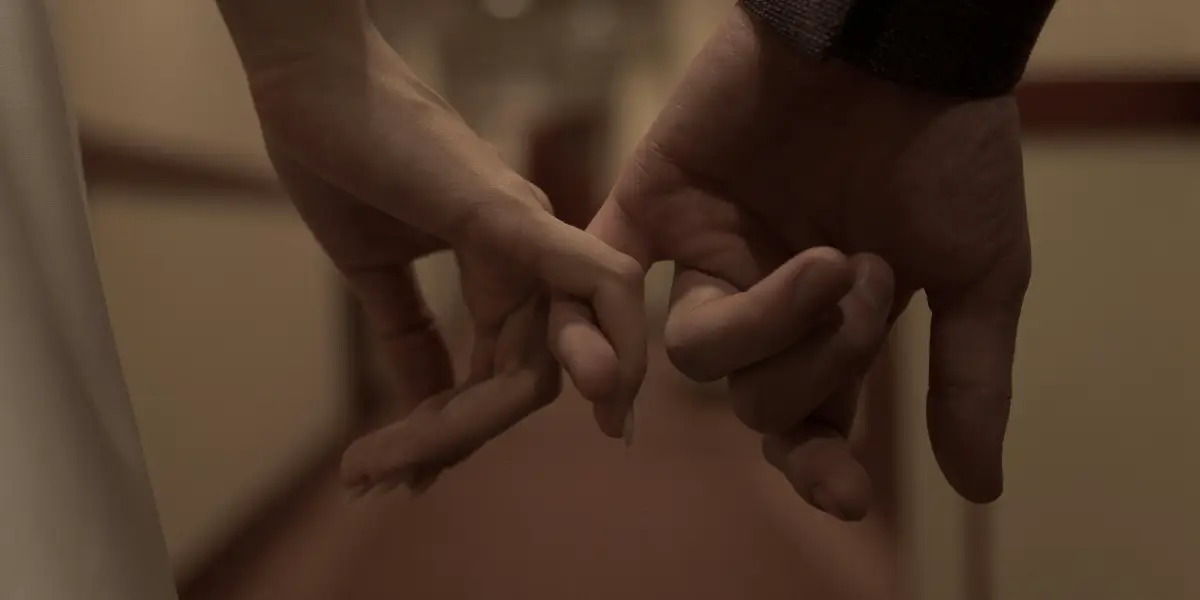What are the most common triggers and relapse risks couples face in recovery?
Couples in recovery from substance use disorders often grapple with a unique blend of triggers and relapse risks, many of which stem from their shared experiences and relationship dynamics. When both partners are managing addiction, the emotional strain, unresolved trauma, and social environments linked to substance use can significantly heighten vulnerability. Recognizing these triggers together is essential for building effective prevention strategies and maintaining mutual sobriety.
Some of the most significant triggers include unresolved relationship conflict, exposure to social settings where substances are present, financial stressors, routines that previously involved substance use, and emotional states like guilt or isolation. Proactively addressing these areas can help couples develop resilience and support each other in recovery.
1. Unresolved relationship conflict
Ongoing tension or past trauma within the relationship can act as a powerful emotional trigger. When arguments or unresolved issues resurface, they can provoke feelings of anger or sadness that lead to cravings and increase the risk of relapse for both partners.
2. Social environments with substances
Attending gatherings where alcohol or drugs are present can test a couple’s resolve. Exposure to substances in social settings, especially with peer pressure or familiar habits, often triggers cravings and can destabilize the recovery process without proper safeguards in place.
3. Financial stressors
Money problems can create significant tension, leading to anxiety, blame, and arguments. Financial hardship may stir old coping behaviors, including substance use, particularly if past spending was tied to addiction. It can also impact access to continued care and support.
4. Old routines and habits
Routines tied to substance use, such as certain locations, times of day, or shared rituals, can trigger cravings. If couples don’t intentionally replace these routines with healthier activities, they may unconsciously fall back into patterns that encourage relapse.
5. Emotional states like guilt or isolation
Feelings of guilt, shame, or loneliness can resurface throughout recovery, especially after missteps or conflict. Without tools to manage these emotions, couples may be tempted to numb the pain through substance use, making emotional regulation vital to relapse prevention.
How can couples identify and map shared triggers effectively?
Identifying shared triggers requires honest, ongoing communication and a willingness to examine how addiction impacts both individuals and the relationship as a whole. Couples navigating the challenges addiction brings to long-term partnerships can benefit from creating visual trigger maps or maintaining a joint journal. These tools help both partners recognize patterns, anticipate high-risk situations, and develop a sense of shared accountability.
- Joint journaling: By maintaining a shared journal, couples can document emotional reactions, daily stressors, and specific situations that feel triggering. This written record makes it easier to identify patterns and supports mutual insight into each other’s experiences and vulnerabilities.
- Trigger mapping: Creating diagrams or written lists of recurring triggers, such as people, places, arguments, or emotional states, gives couples a visual tool to reference. These maps clarify connections and help both partners better anticipate risky situations.
- Open dialogue: Regular, honest discussions about personal and shared triggers deepen mutual understanding. This practice allows each partner to express how certain events or dynamics affect their recovery and builds empathy in the relationship.
- Regular check-ins: Scheduling weekly or biweekly reviews of your trigger map helps keep it current. These check-ins provide an opportunity to adjust coping strategies and acknowledge progress, making the process collaborative and forward-focused.
- Professional guidance: Working with a counselor can uncover less obvious triggers and offer structured tools for managing them. Therapists also mediate discussions, reduce conflict, and guide couples in building safer recovery routines together.
What communication strategies strengthen recovery and reduce relapse risk?
Effective communication is fundamental to reducing relapse risk and fostering a healthy recovery environment. Addressing resentment and anger that arise in relationships affected by addiction requires active listening, clear expression of needs, and constructive conflict management. Couples should prioritize regular emotional check-ins, use “I” statements, and create a safe space for honest discussions.
- Active listening: Fully engage with your partner’s perspective, reflecting back what you hear to ensure mutual understanding.
- Expressing needs and boundaries: Clearly communicate personal needs and establish boundaries that support recovery for both partners.
- Conflict management: Utilize de-escalation techniques and agree on healthy approaches to disagreements, such as taking breaks or seeking outside support.
- Scheduled emotional check-ins: Make time for regular discussions about feelings, stressors, and new triggers to maintain transparency and trust.
- Couples therapy: Seek guidance from a therapist who specializes in addiction and relationship dynamics to strengthen communication skills.
Which coping skills and boundaries are most effective for couples in recovery?
Building joint coping skills and setting clear boundaries are critical for managing triggers and protecting both partners’ recovery. Couples can benefit from developing a shared recovery plan that incorporates mindfulness, journaling, and practical strategies for high-risk situations. Establishing boundaries helps safeguard sobriety and encourages individual growth within the partnership.
Key practices include engaging in mindfulness exercises together, maintaining a journal to document triggers, and agreeing on shared coping techniques like deep breathing or reaching out to a support person. Setting and respecting boundaries around social situations, substance exposure, and emotional triggers further strengthens the couple’s ability to support each other.
How should couples respond to relapse and maintain long-term recovery?
When relapse occurs, it should be viewed as an opportunity for growth rather than a failure. Couples can respond most effectively by approaching the situation with empathy, assessing what contributed to the relapse, and recommitting to their recovery journey. Understanding the distinction between supporting a partner versus enabling unhealthy behaviors is crucial for long-term success.
- Responding with empathy: Offer understanding and support, avoiding blame or shame, to help your partner process the experience openly.
- Assessing and adjusting plans: Review the underlying factors that led to relapse and update prevention strategies as needed, potentially with professional input.
- Recommitting to recovery: Set new goals together, reinforce boundaries, and renew your commitment to each other’s sobriety and well-being.
- Seeking ongoing support: Continue engaging in therapy, attending peer support groups, and connecting with mentors for accountability and encouragement.
- Celebrating progress: Acknowledge and celebrate recovery milestones, reinforcing positive behaviors and strengthening your relationship bond.
By taking these steps, couples can transform setbacks into opportunities for deeper connection and sustained recovery.
What makes Carrara Rehab the premier choice for luxury addiction treatment?
Carrara Rehab stands out as an ultra-luxury addiction treatment and wellness center in Malibu, California, offering a highly personalized approach to recovery. We provide a discreet, comfortable, and comprehensive experience for individuals seeking privacy, world-class amenities, and holistic care. Our clients, often high-profile individuals, executives, and those in elite circles, benefit from a serene environment that prioritizes confidentiality and healing. At Carrara, we combine evidence-based therapies with holistic treatments, ensuring every aspect of your well-being is addressed in a setting that feels more like a high-end resort than a traditional rehab facility.
Our center is designed for those who expect the highest standards in both care and comfort. With private rooms, gourmet meals, state-of-the-art fitness facilities, and spa services, clients can focus on their recovery without sacrificing luxury. Our holistic therapies, such as yoga, acupuncture, and mindfulness, complement personalized treatment plans that address your unique psychological, emotional, and physical needs. A low staff-to-patient ratio ensures you receive attentive, one-on-one support throughout your journey. For those who value privacy, our secluded setting provides the ultimate sanctuary for transformation and long-term wellness.
- Ultra-luxury amenities: Enjoy private suites, gourmet cuisine, and exclusive spa treatments designed for maximum comfort and relaxation.
- Personalized, holistic care: Benefit from individualized treatment plans that integrate evidence-based therapies with holistic approaches for mind, body, and spirit.
- Discreet environment: Our facility is tailored for those who require utmost privacy, making it an ideal choice for high-profile clients.
Discover the unique features of each of our luxury rehab centers, including The LA Carrara House, The Hollywood Hills Carrara House, and The Malibu Beach House, each offering a distinct blend of comfort, privacy, and personalized care.
Ready to take your recovery to the next level?
At Carrara Rehab, we invite you to experience a transformative journey toward sobriety and wellness in an environment where luxury, privacy, and individualized care are at the forefront. Our comprehensive wellness programs, high staff-to-patient ratio, and commitment to holistic healing ensure that every client receives the attention and support they need for lasting recovery. Whether you value spa treatments, personalized nutrition plans, or a serene, private setting, our center is designed to help you heal in comfort and style.
- Quick setup: Begin your personalized recovery journey with ease, guided by our experienced team from day one.
- Long-term benefits: Achieve not only sobriety but also improved mental, physical, and emotional well-being for a truly renewed life.
- Continued support: Our program emphasizes aftercare and ongoing wellness, helping you maintain your progress beyond treatment.
Take the first step toward a new chapter in your life, discover how Carrara Rehab can provide the luxury, privacy, and care you deserve.
Britney Elyse has over 15 years experience in mental health and addiction treatment. Britney completed her undergraduate work at San Francisco State University and her M.A. in Clinical Psychology at Antioch University. Britney worked in the music industry for several years prior to discovering her calling as a therapist. Britney’s background in music management, gave her first hand experience working with musicians impacted by addiction. Britney specializes in treating trauma using Somatic Experiencing and evidence based practices. Britney’s work begins with forming a strong therapeutic alliance to gain trust and promote change. Britney has given many presentations on somatic therapy in the treatment setting to increase awareness and decrease the stigma of mental health issues. A few years ago, Britney moved into the role of Clinical Director and found her passion in supervising the clinical team. Britney’s unique approach to client care, allows us to access and heal, our most severe cases with compassion and love. Prior to join the Carrara team, Britney was the Clinical Director of a premier luxury treatment facility with 6 residential houses and an outpatient program




